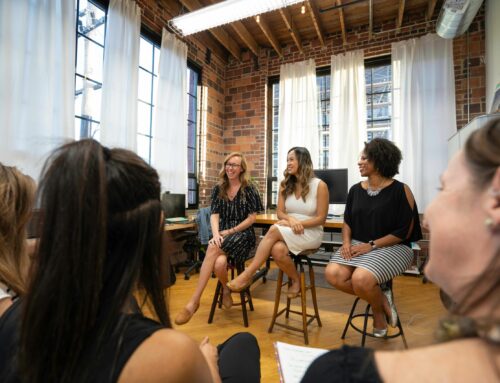One year into the COVID-19 pandemic, it’s clear that education in America has changed dramatically. In a matter of days, tens of millions of families were forced to pivot to both working and teaching their children at home as schools across the nation closed in 2020. Although this new homeschool reality was a shock for many families, it was business as usual for the 2 million Americans who were already educating their kids at home.
And while schools slowly reopen this year as vaccinations increase and new coronavirus cases plummet, a seismic shift is rocking the landscape of American education. Instead of sending their children back to school, many parents are choosing to permanently join the ranks of their homeschooling peers across the nation. Along the way, they want to know how their state compares when it comes to homeschooling regulations.
A snapshot of homeschooling in America
While homeschooling is legal in all 50 states, each state has its own laws, guidelines, and regulations. This means that some states are more homeschool-friendly than others.
For example, some states are very hands-on and require homeschool parents to file paperwork, teach required subjects for a specific number of hours, agree to in-home evaluations, and participate in state testing requirements.
In other states, once parents file the initial paperwork they have a great deal of autonomy to guide their child’s education as they see fit—with very few requirements from their state government. This means they can develop their own curricula, enroll in online homeschool programs, and join cooperatives with other parents to teach subjects like foreign languages, art, and music.
Not surprisingly, for many parents the less record-keeping, reporting, and testing required by the state the better. For them, more autonomy makes for a better homeschooling environment for their children than in those states with more invasive government intervention.
The best states for homeschooling
According to the Home School Legal Defense Association (HSLDA), the best states for homeschooling are those with the least-restrictive legal environments. Here are some of the top states based on this criterion:
Alaska: Perhaps the least-restrictive state in America, Alaska simply requires children between the ages of 7 and 16 to either attend a school or comply with the state’s homeschool law. This means parents who choose to homeschool are not required to notify the state, get approval, give tests, be a certified teacher, or maintain contact with the government.
Idaho: No notice to the school district is required, nor do homeschool parents have to possess specific qualifications, obtain district approvals, do testing, or provide information about their homeschool program, if asked. But they must select an instructor for their children, which can be anybody, including themselves. They are also required to teach language arts, math, science, and social studies.
Illinois: Homeschools here are treated as private schools. They do not have to give notice to the school district, nor do they have to register with—or be recognized by—the state. However, homeschool parents must teach required subjects including language arts, math, science, social studies, fine arts, and physical development and health, and they must specify that instruction takes place in English.
Indiana: As one of the least-restrictive states, home schools here are essentially considered to be private schools and must comply with the state’s private school statute. Parents must teach in English and provide instruction equivalent to public schools—though the state board of education is not allowed to define what this means, nor can it approve homeschool programs. Parents must also operate their homeschool the same number of days as public schools—usually 180 days—and keep attendance records.
Michigan: While no notice to the school district is required, parents have the option to homeschool under the state’s homeschooling law, or as a nonpublic school—or both. Regardless of the option chosen, parents must teach specific subjects, though the regulations do not prescribe grade levels or how often courses are taught.
Missouri: Although no notice to the school district is required, parents must teach specific subjects and keep records for all children under age 16. They must also provide at least 1,000 hours of instruction during each school term—with 600 of these hours in core subjects.
New Jersey: Under state law, the only requirement is that parents provide their children with an equivalent education to one they would receive in public school. So while no notice to the school district is required, parents must be sure to teach the same subjects offered by their local public school.
Oklahoma: With no requirement to test, report, or give the school district notice, parents here have great freedom to run their homeschools as they see fit—so long as they operate for at least 180 days each school year.
Texas: Homeschools here are considered private schools and must teach math, reading, spelling and grammar, and a course in good citizenship. And while no notice to the school district is required, homeschool parents must use a written curriculum, which can be satisfied by an online program.
States with low regulation
Moving down the continuum, the HSLDA also looks at the amount of regulation imposed in the homeschooling arena. These states have fewer regulations and are thus considered to be relatively more homeschool-friendly:
- Alabama
- Arkansas
- Arizona
- California
- Connecticut
- Delaware
- Georgia
- Iowa
- Kansas
- Kentucky
- Mississippi
- Montana
- Nebraska
- Nevada
- New Mexico
- Utah
- Wisconsin
- Wyoming
States with moderate regulation
According to HSLDA, these states regulate homeschooling more, but do not fall to the bottom of the rankings:
- Colorado
- Florida
- Hawaii
- Louisiana
- Maine
- Maryland
- Minnesota
- New Hampshire
- North Carolina
- North Dakota
- Ohio
- Oregon
- South Carolina
- South Dakota
- Tennessee
- Virginia
- Washington
- Washington, DC
- West Virginia
The worst states for homeschooling
Standing in contrast, these five states combine high regulations with more restrictions and rank among the worst state for homeschooling in the United States:
- New York
- Rhode Island
- Vermont
And in a surprising twist, Massachusetts and Pennsylvania have no statewide system of regulation. This means that homeschool families are at the mercy of regulations imposed by local school districts. In practical terms, homeschooling conditions in these two states are inconsistent—with some districts treating homeschool families well while others overburden them with regulations.
Homeschooling—the ultimate choice in education
Not surprisingly, opinions vary widely on the degree to which more or less regulation in homeschooling is preferable. Some parents appreciate greater regulation because—other than reporting and recordkeeping—the curricula are planned out for them. Others find that excessive regulations infringe on the freedom promised by homeschooling and see onerous guidelines as stifling.
In the end, the option to homeschool in the least-restrictive environment possible represents the ultimate choice in education. And as Ian Slatter with the HSLDA notes, “Homeschool performance doesn’t change between students in the easy states and those in the difficult ones. There’s a lot of regulation and work placed on parents in the difficult states with no benefit.”








This article forgot Pennsylvania. Would be under the worse to homeschool in.
The article does state that Pennsylvania and Massachusetts are two states where there is no statewide
system of regulation, which puts homeschool families at the mercy of regulations imposed by their local
school district. Such a situation would certainly make homeschooling a bigger challenge.
Pa is highly regulated and local districts don’t get to make up their own rules. They think they can but PA has laws which the districts are to follow.
Virginia offers the option to opt out with strong religious beliefs its being exempt from the school system because ur religious beliefs aren’t in agreement with the public school. So there’s no reporting to anyone
https://hslda.org/post/how-we-stopped-these-districts-from-inventing-rules
This website is highly inaccurate. Pennsylvania does have state wide homeschool laws. 4 laws to be exact and each of those laws has quite a list of regulations. Did you even do a simple Google search before writing this. Also as a former Texan homeschool family, the curriculum does not need to be an online program or a written curriculum. It just simply needs to be legit. And legitimacy is determined by the parent.
The information for the post was in part obtained from HSLDA. They are the ones who ranked states into low, moderate, or high regulation states as you can see
by the map and information on Pennsylvania homeschooling laws at this URL- https://hslda.org/legal/pennsylvania.
Holly,
Thanks for the info.
My daughter is homeschooling her children in Zambia.
She is keeping good records and doing achievement testing.
Any recommendations?
What do you recommend she do upon returning to the states?
Thanks,
Raul
Raul, every state has its own regulations pertaining to homeschooling and school districts have their own rules on if they will accept the work a homeschool student did if they return
to public school. The best course of action would be for your daughter to look up the regulations for the state in which they will live when they return. I would also
advise her to join a local homeschool Facebook group to get information from the folks who are already homeschooling in that area.
I’m not sure why Rhode Island is on the strick list? We homeschool in RI and all they ask for is a LOI and it’s good for the entire time you homeschool. And a EOY report that all has to say is child passed all required fields . Other than that they let you teach what you want . RI needs to be move to moderate section.
HSLDA has information on their website stating more requirements than those that you mentioned – see https://hslda.org/post/how-to-comply-with-rhode-islands-homeschool-law
These requirements are more than the moderate and easy states require, which is how Rhode Island arrived on our list of states that are more strict.
I have homeschooled in upstate NY and it was a piece of cake. I am now homeschooling in SC and it’s the same , no difference whatsoever. If you are
Doing what you are supposed to honestly it doesn’t matter how strict or not the homeschool laws are, just fill it out the paper work and send it in. 🙄
You make a good point that following the procedures does allow a person to homeschool in all fifty states. However, more
regulation doesn’t equate to a better homeschool education.
More regulations also do not naturally equate to being the worse states to homeschool in.
While I have my issues with NY homeschooling laws (specifically about homeschooled kids not being able to participate in school sports), I actually think that NY holding homeschool families accountable for what’s being taught is not necessarily a bad thing. I can also test my kid timed or untimed for the assessments. This helps me to see where she’s at. Is she learning? Is her homeschooled education competitive (compared to public and private schools). I personally don’t mind it too much. I do wish, however, that NY will give some more benefits to homeschoolers
While I agree that regulations don’t necessarily mean a state is a bad place to homeschool, having had friends who homeschool
in highly regulated states, I know that it can be burdensome to have to adhere to those regulations. I homeschool in Texas, where
we are considered private schools and we are not regulated, except that we have to teach math, reading, spelling and grammar, and
a course in good citizenship and use a written curriculum. Does that mean that is all we teach? Not at all. Most Texas
homeschoolers are going above and beyond. I find much to agree with in HSLDA’s position on regulation in their post
(https://hslda.org/post/here-is-why-good-people-oppose-reasonable-homeschool-regulation), “Here’s Why Good
People Oppose ‘Reasonable’ Homeschool Regulation.”
For Nicole’s or any other where it was a piece of cake to homeschool, kids go to college? I’d be interested when many states don’t require much documentation, how things work out for schooling past k-12. And obviously the parents don’t work outside the home. Haha. I knew a woman who was home schooling her handicapped child while she was at work. Good job if u can get it. Ridiculous. And another who had 10 kids she was homeschooling baby to age 17. Who do you think was schooling as well as caring for many of the younger children. Give me a break. Another ridiculous situation.
Not sure from your comments if you are a homeschooling parent yourself. I have six children whom have all been homeschooled. We are in a state
where we are considered a private school and private schools are not regulated here. I have been a stay-at-home homeschooling parent, a work outside
the home homeschooling parent, and now I am at work-at-home homeschooling parent. Homeschooling doesn’t take hours a day like public school does.
Homeschool kids in states with a lot of regulation or little regulation have no problems getting into college. Two of my five adult kids have chosen
to go to college and had zero issues. We used Transcript Maker to create their transcripts and those transcripts were accepted readily. The thing I have always
admired about homeschooling families is their creativity and determination to give their kids a quality education.
tT
I live in Pennsylvania and homeschool here. There are definitely state regulations and school districts must follow them. We are in no way ruled by our school district.
This article was posted in June of 2020 and clearly states the Pa homeschool laws. Your article was posted in March of 2021, so I have no idea where you got your info.
https://hslda.org/post/how-to-comply-with-pennsylvanias-homeschool-law
Thank you for providing us with this link and detailing your experience as a Pennsylvania homeschooler.
Right,..given that I submit these reports every quarter, I can speak to how ‘bothersome’ they supposedly are. The toughest one is the very first one in first grade. After that, it’s literally copy, paste, cut, put in some one liners. Most of my homeschool mom friends attest to the fact that it is much easier than they thought. I think people really only complain because they know that there are states where reporting is non existent. I can’t speak for other states, but I can attest that for NY state it is not as difficult as it looks on paper. In fact, one of my friends confessed that if it wasn’t for the reports, she would totally fall off the homeschooling wagon. Also, I often hear homeschoolers (us) talk about how much more our kids are learning..However, we don’t speak of the flipside…of not learning enough in certain subjects. I have met a number of adults who were homeschooled as kids. The recurring theme was the fact that one group of 7 kids were weak writers because their mom didn’t like writing so she skipped it. Another talked of the fact that she felt below her peers (at college) in Calculus because her mom didn’t really know it well. My point is that the reporting has its merits. It is in place to make sure homeschoolers are completive with their peers. The HLSDA article was ripe with equating ‘poor’ homeschool states with homeschool reporting requirements. I don’t think that should have been used to make a judgement. NY is not a homeschool friendly state because the very strong teachers union does everything in its power to force homeschoolers to go to physical school. The reporting regulations are not what makes NY are tough state to homeschool in. When I read those statements, I know for a fact that the HLSDA writer has not actually homeschooled in NY State
Thanks for sharing your experiences. As in most things, how one feels about the homeschooling regulations is pretty subjective.
I’ve homeschooled since 1993 and I have seen the gamut of homeschooling rules and regulations. The one thing that we can all probably
agree on is that we are fortunate to have the choice to teach our children at home.
[…] separated the states by the type of regulation that is required. As you can see the most stringent homeschool requirements appear to be the states […]